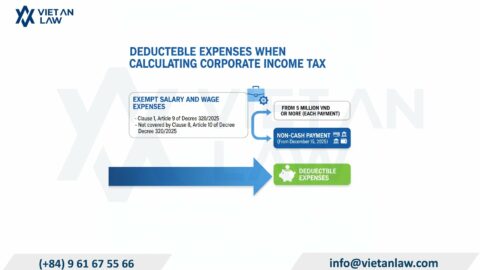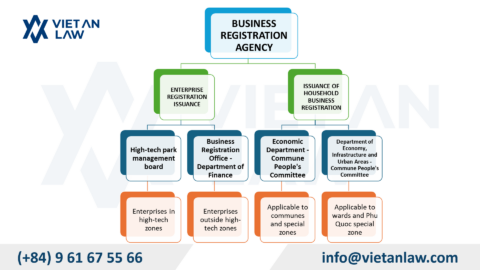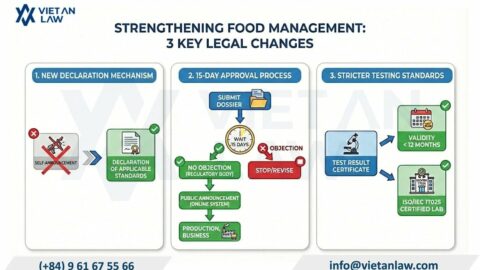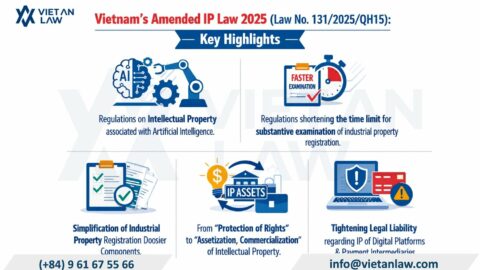On June 30, 2023, the Government issued Decree 43/2023/ND-CP guiding the Law on Inspection.
Basic information about Decree 43/2023/ND-CP issued by the Government Guidance on the Law on Inspection includes:
| Date issued | 30/06/2023 |
| Effective date | 08/15/2023 |
Decree 43/2023/ND-CP was developed with 10 Chapters and 70 Articles detailing a number of articles of the Law on Inspection and measures to implement the Law on Inspection.
Decree 43/2023//ND-CP clearly states that the subjects of application of the Decree include the following subjects:
Decree 43/2023/ND-CP concretizes the provisions in the Law on Inspection on inspectors who are assigned to perform specialized inspection tasks, and at the same time inherits relevant provisions of Decree No. 97/2011/ND-CP regulates inspectors and inspection collaborators, a number of detailed regulations include:
According to the provisions of Decree 43/2023/ND-CP, Inspectors who fully satisfy the criteria and conditions specified in Articles 39, 40 and 41 of the Law on Inspection shall be considered for rank promotion in the following cases:
In addition, regulations on requirements for outstanding achievements in public service activities:
Decree 43/2023/ND-CP stipulates the appointment of inspection ranks according to the transfer procedure as follows: Persons who are working in inspection agencies and fully meet the conditions and professional standards specified in Article 39 , 40 and 41 of the Law on Inspection shall be considered for transfer of ranks for appointment to inspection ranks, specifically as follows:
Requirements for inspectors taking the exam for promotion to Principle Inspectors include:
Requirements for Principle Inspectors to take the exam to raise the rank to Senior Inspectors, in addition to meeting the conditions and standards for the level of task completion and capacity, professional and professional qualifications, also need to have worked time in the rank of Principle Inspectors and equivalent to at least 06 years, except for cadres, civil servants, public employees, officers of the People’s Army, officers of the People’s Public Security, people doing cipher work working in agencies or organizations, other units and are holding the rank of civil servant or public employee, the rank equivalent to the rank of Senior Inspectors shall be transferred to the inspection agency.
During the time holding the rank of Principle Inspectors and equivalent, he has presided over the development and appraisal of at least 02 legal documents or topics, schemes, projects, scientific research programs at the state, ministerial or branch levels or at the provincial level, which the agency using Principle Inspectors is assigned to lead the research and construction, which has been promulgated or accepted by a competent authority. Have a university degree or higher; have an advanced diploma in political theory or an advanced degree in political – administrative theory; have a certificate of professional training for Senior Inspectors; have a certificate of state management knowledge training according to the standards of the senior specialist rank. Having basic information technology skills, using foreign languages at a level equivalent to level 4 of the Vietnamese Foreign Language Competency Framework, or using ethnic minority languages for civil servants working in ethnic minority areas number required by the job position.
Decree 43/2023/ND-CP stipulates that the specific re-inspection grounds are as follows:
Regarding the authority to re-inspect, Decree 43 stipulates that the Government Inspector General shall decide to re-inspect the case with the conclusion of the Ministry Inspector, the inspection agency of the Government-attached agencies, and the Provincial Inspectorate upon discovery signs of breaking the law.
The Chief Inspector of the Ministry shall decide to re-inspect the case with conclusions from the Inspector General of the General Department, the Inspectorate of the Department and the equivalent, of other agencies of the Ministry assigned to perform the specialized inspection function; The case has been concluded by the Department Inspector under the ministry’s state management when detecting signs of law violation.
The Chief Inspector of the province shall decide to re-inspect the administrative inspection case which has been concluded by the Department Inspector, the Inspector of the district, town, provincial city, city under the central authority when detecting signs of law violation.
The time limit for re-inspection is no more than 45 days for an inspection conducted by the Government Inspectorate and not more than 30 days for an inspection conducted by the Inspectorate of the Ministry or the Inspectorate of the province.
If an inspection team is established by the Chief Inspector of the Ministry, the Chief Inspector of an agency attached to the Government, or the Chief Inspector of a province, the head of the inspection team must be a principal inspector or higher.
The Decree stipulates that the composition of the inspection team includes: Head of inspection team, deputy head of inspection team (if necessary), member of inspection team.
The head of the agency or unit assigned to preside over the inspection shall propose a person with professional qualifications suitable to the requirements of the inspection to be the head of the inspection team, deputy head of the inspection team, and the number of people participating in the inspection team for inspection decision makers to consider and decide.
The head of the agency or unit assigned to preside over the inspection shall discuss and reach an agreement with the person expected to be the head of the inspection team on who is expected to be the member of the inspection team. The proposal of the head and members of the inspection team must be notified to the unit managing and directly employing the proposed person, the unit in charge of organizational work, officials and persons expected to be members of the inspection team.
The head of the inspection team must meet some general criteria such as:
In addition, if an inspection team is established by the Government Inspector General, the head of the inspection team must be a principal inspector or higher; If an inspection team is established by the Chief Inspector of the Ministry, the Chief Inspector of an agency attached to the Government, or the Chief Inspector of the province, the head of the inspection team must be a principal inspector or higher; If an inspection team is established by the Chief Inspector of the General Department or Department of the Ministry, the head of the inspection team must be an inspector or higher; If the inspection team is established by the Chief Inspector of the department or the chief inspector of the district, the head of the inspection team must be an inspector or higher.
Thus, unlike the provisions of the 2010 Law on Inspection, civil servants who have not been appointed to the rank of inspectors at agencies performing the specialized inspection function are not allowed to be heads of inspection teams; A civil servant who is a department head or deputy or holds a higher leadership or managerial position at an inspection agency but has not been appointed to the rank of chief inspector, is also not allowed to be the head of an inspection team.
Decree 43/2023/ND-CP stipulates that Persons in one of the following 04 cases may not participate in the inspection team:
According to Decree 43, depending on the nature and seriousness of the violation, the person who commits violations in the implementation of inspection conclusions must be disciplined in one of the forms of reprimand, warning, dismissal towards officials; reprimand, warn, lower salary grade, demotion, dismissal or force termination of civil servants; reprimand, warn, dismiss or force quit public employees or be examined for penal liability. In case of causing damage, they must pay compensation in accordance with law when committing acts such as:
If the violators are not cadres, civil servants or public employees, they shall, depending on the nature and severity, be administratively sanctioned or examined for penal liability in accordance with law.
Heads of agencies or organizations directly managing inspected subjects being cadres, civil servants or public employees who commit violations shall be disciplined in the following forms:
If they are not cadres, civil servants or public employees, they shall, depending on the nature and severity of their violations, be administratively sanctioned or examined for penal liability. the law.
In addition to the above provisions, Decree 43 also provides specific instructions on the order and procedures for assessment, freezing of accounts, and recovery of assets that have been illegally appropriated, seized, used or lost. in inspection activities; Publicizing inspection conclusions, monitoring, urging and examining the implementation of inspection conclusions and handling decisions on inspection; The settlement of recommendations, reflection on inspection activities, settlement of complaints about the contents of the inspection conclusions.
Clients need advice on Law inspection and related regulations please contact Viet An Law Firm for the best support.




